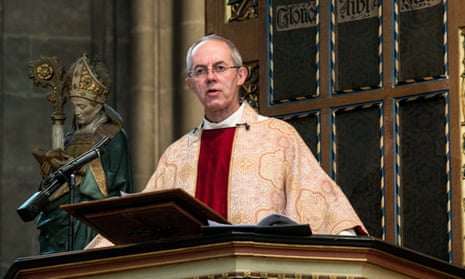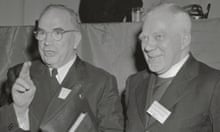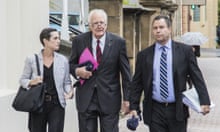The Church of England is to make far-reaching changes to the way it deals with cases of sex abuse, following a highly critical independent report that details how senior church figures failed to act upon repeated disclosures of a sadistic assault by a cleric.
The first independent review commissioned by the church into its handling of a sex abuse case highlights the “deeply disturbing” failure of those in senior positions to record or take action on the survivor’s disclosures over a period of almost four decades.
The Guardian understands that among those told of the abuse were three bishops and a senior clergyman later ordained as a bishop. None of them are named in the report by Ian Elliott, a safeguarding expert, but the survivor identified them as Tim Thornton, now bishop of Truro; Richard Holloway, former bishop of Edinburgh in the Scottish Episcopal church, now retired; John Eastaugh, former bishop of Hereford, now dead; and Stephen Platten, former bishop of Wakefield and now honorary assistant bishop of London.
The church acknowledged the report was “embarrassing and uncomfortable” reading.
Elliott examined the case of “Joe” – described in the report as “B”, and whose identity is known to the Guardian – who as a 15-year-old was subjected to a “sadistic” assault in 1976 by Garth Moore, a leading figure in the church, the chancellor of three dioceses and vicar of St Mary’s Abchurch in the City of London. Moore, who died in 1990, is described in the report as “A”.
Over a period of almost 40 years, Joe made disclosures about the abuse to dozens of people in the C of E, including senior members of the hierarchy. While some of those Joe spoke to had clear recollections of his disclosures, none of the senior figures had any memory of such conversations. Elliott describes this as “a deeply disturbing feature of this case”.
The report says: “What is surprising about this is that [Joe] would be speaking about a serious and sadistic sexual assault allegedly perpetrated by a senior member of the hierarchy. The fact that these conversations could be forgotten about is hard to accept.”
Despite the seriousness of the disclosure, no records were kept by the four clergymen Joe spoke to and no further action was taken. “Practice of this nature is simply not acceptable,” the report says.
Last October, the C of E paid £35,000 in compensation and apologised to Joe, saying “the abuse reported is a matter of deep shame and regret”. It also commissioned the independent review into its handling of the case.
The review also criticises the office of Justin Welby, the archbishop of Canterbury, for failing to respond meaningfully to repeated efforts by the survivor throughout 2015 to bring his case to the church leader’s attention.
The review’s conclusions were released on Tuesday as the government-appointed inquiry into child sex abuse prepares to examine hundreds of thousands of files relating to the abuse of children and vulnerable adults within the church. Welby has said that abuse by church figures and within other institutions has been “rampant”.
The full 21-page report has been seen by the Guardian, although the C of E published only its conclusions and recommendations.

Chief among them was the need for training on keeping records and taking action for those who may receive disclosures of abuse. This was particularly important for those in senior positions, the report said.
It also recommended that the church prioritises its pastoral responsibilities above financial and reputational considerations, and that “every effort should be made to avoid an adversarial approach” in dealing with survivors of abuse.
Welby has made “a personal commitment to seeing all the recommendations implemented quickly”, said Sarah Mullally, bishop of Crediton, speaking on behalf of the C of E. “He thinks the situation is embarrassing and uncomfortable for the church.”
In a statement, Thornton said: “I remember having several conversations with [Joe], mainly about his faith. But I am sorry to say that I simply do not recall the conversation that he has referred to. Had I been party to a conversation of that nature, I would either have referred him to somebody who would have been well placed to help him, or would have told somebody myself about such a serious disclosure.”
A statement from the diocese of London said Platten had apologised to Joe for his “lack of detailed recollection of their conversations in the 1980s” and “regretted he was unable to help further”.
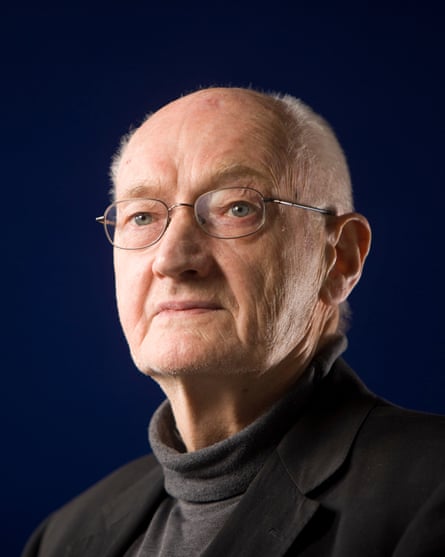
Holloway said he did not recall any disclosure: “I have no memory of it, but I’ve no reason to challenge it. I had many pastoral conversations with many people.”
Joe also repeatedly sought to bring his case to Welby’s attention. “His persistence in doing this is a product of the deep sense of frustration and anger that he feels about the lack of responsiveness from the church,” says the report. However, the archbishop’s office failed to provide “meaningful replies”.
While acknowledging that Welby could not be expected “to reply personally to each safeguarding concern that is received by his office”, survivors should receive “a response that is meaningful and helps them move on,” the report says.
Joe formally reported the abuse to the church’s safeguarding officers in July 2014, and later lodged a claim for compensation. On receipt of the claim, the church cut off contact with Joe on the advice of its insurers, who wanted to avoid liability.
The report is highly critical of the church’s actions, saying the withdrawal of support “can create risk of self-harm and should be avoided at all costs”. It added: “The pastoral needs of the survivor were set aside to avoid incurring legal liability for financial compensation.”
In conclusion, the report says that in Joe’s case the church did not comply with its policies on safeguarding, and structural changes were needed. “The existence of policies alone is not enough. What matters are the actions taken to implement those policies.”
Responding to the report, Mullally said: “The church has treated [Joe] appallingly. Not only was he horrifically abused, but despite him trying to get his story heard over decades, the church did not hear him, believe him or respond appropriately. That’s appalling.”
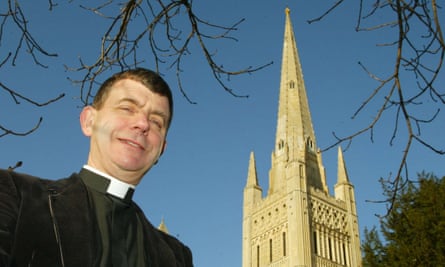
Describing Joe as enormously courageous, she added: “I can only begin to imagine what it has cost him. We owe it to him and other survivors to get this right. This should never have happened.”
The church will require members of the clergy to record disclosures of abuse and take action. It will ensure that pastoral care of survivors takes precedence over protection of reputation or financial considerations.
Mullally is drawing up an action plan to implement the report’s proposals, covering education and training, communication and structural change.
Joe welcomed the report, saying he hoped to see rapid changes. “It would be incredibly embarrassing if in two months there are more survivors in similar situations of insurers and bishops playing legal games,” he said.
He added: “The church has told me no one can do much about the bishops who have walked away with ‘no recollection’ – nobody can make them remember. But I will always find it difficult to believe they have no hint of memory of a significant story.”
The church, he said, “has run out of time, but let’s hope they take ownership of painful questions and really show a willingness to change their culture and make their structure safe for survivors. I hope Welby is now wide awake.”
